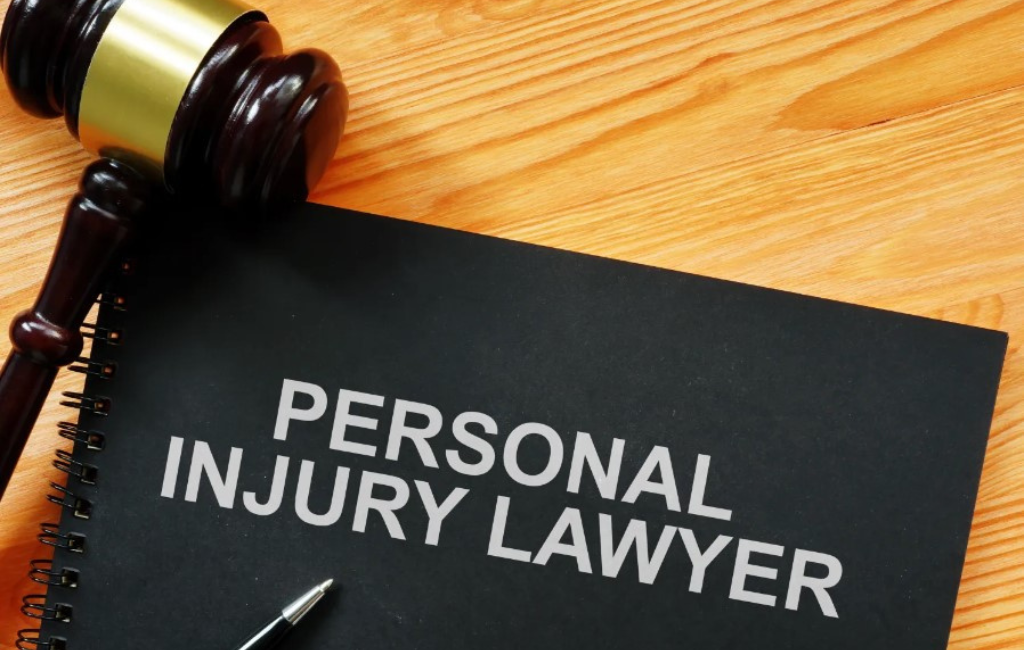Personal Injury Lawyer Secures Justice

-
Table of Contents
- Personal Injury Lawyer Secures Justice
- The Role of a Personal Injury Lawyer
- Case Study: Car Accident Victim
- Responsibilities of a Personal Injury Lawyer
- Case Study: Medical Malpractice
- The Impact on Clients’ Lives
- Statistics on Personal Injury Cases
- Challenges Faced by Personal Injury Lawyers
- Case Study: Slip and Fall Incident
- Conclusion
Personal Injury Lawyer Secures Justice
Personal injury lawyers play a pivotal role in the legal system, advocating for individuals who have suffered harm due to the negligence or misconduct of others. Their expertise and dedication often make the difference between a fair settlement and a prolonged struggle for justice. This article explores the significance of personal injury lawyers, their responsibilities, and the impact they have on their clients’ lives.
The Role of a Personal Injury Lawyer
Personal injury lawyers specialize in tort law, which covers civil wrongs and damages. Their primary objective is to secure compensation for their clients, who may have experienced physical, emotional, or financial harm. These legal professionals handle a variety of cases, including:
- Car accidents
- Medical malpractice
- Workplace injuries
- Slip and fall incidents
- Product liability
By representing victims, personal injury lawyers help level the playing field against powerful insurance companies and large corporations. They provide legal advice, gather evidence, negotiate settlements, and, if necessary, represent their clients in court.
Case Study: Car Accident Victim
Consider the case of Jane Doe, who was severely injured in a car accident caused by a distracted driver. Jane faced mounting medical bills, lost wages, and significant pain and suffering. Her personal injury lawyer conducted a thorough investigation, gathered evidence, and negotiated with the insurance company. Ultimately, Jane received a substantial settlement that covered her expenses and provided financial security for her future.
Responsibilities of a Personal Injury Lawyer
Personal injury lawyers undertake numerous responsibilities to build a strong case for their clients. These include:
- Investigating the incident: Gathering evidence, interviewing witnesses, and consulting experts.
- Assessing damages: Calculating the full extent of the client’s losses, including medical expenses, lost income, and pain and suffering.
- Negotiating with insurance companies: Engaging in discussions to reach a fair settlement.
- Litigating in court: Representing the client in court if a settlement cannot be reached.
These tasks require a deep understanding of the law, strong analytical skills, and the ability to communicate effectively with various stakeholders.
Case Study: Medical Malpractice
John Smith underwent surgery that resulted in severe complications due to a surgeon’s negligence. His personal injury lawyer meticulously reviewed medical records, consulted with medical experts, and built a compelling case. The lawyer’s efforts led to a favorable verdict, providing John with the compensation needed for ongoing medical care and rehabilitation.
The Impact on Clients’ Lives
The work of personal injury lawyers extends beyond financial compensation. They provide emotional support and guidance during challenging times. Clients often face physical pain, emotional distress, and uncertainty about their future. A dedicated lawyer can offer reassurance and a sense of justice.
For instance, in workplace injury cases, a lawyer’s intervention can lead to improved safety standards, preventing future accidents. In product liability cases, holding manufacturers accountable can result in safer products for consumers.
Statistics on Personal Injury Cases
According to the National Center for Health Statistics, approximately 31 million people are injured across the United States each year, leading to 2 million hospitalizations and 162,000 deaths. The financial impact is staggering, with the National Safety Council estimating the total cost of injuries at $1,097.9 billion annually. These figures highlight the importance of personal injury lawyers in addressing the widespread consequences of accidents and negligence.
Challenges Faced by Personal Injury Lawyers
Personal injury lawyers encounter several challenges in their pursuit of justice. These include:
- Complex legal procedures: Navigating the intricacies of tort law and court procedures.
- Dealing with insurance companies: Overcoming tactics used by insurers to minimize payouts.
- Proving liability: Establishing fault and causation in cases with limited evidence.
- Managing client expectations: Balancing realistic outcomes with clients’ hopes for compensation.
Despite these challenges, personal injury lawyers remain committed to their clients’ well-being and work tirelessly to achieve favorable outcomes.
Case Study: Slip and Fall Incident
Mary Johnson slipped and fell in a poorly maintained grocery store, resulting in a broken hip. Her personal injury lawyer faced resistance from the store’s insurance company, which argued that Mary was partially at fault. Through diligent investigation and expert testimony, the lawyer demonstrated the store’s negligence, leading to a settlement that covered Mary’s medical expenses and rehabilitation costs.
Conclusion
Personal injury lawyers are indispensable advocates for those who have suffered harm due to the actions of others. Their expertise, dedication, and compassion enable them to secure justice and provide much-needed support to their clients. By handling complex legal matters, negotiating with insurance companies, and representing clients in court, personal injury lawyers play a vital role in ensuring that victims receive the compensation they deserve. The impact of their work extends beyond financial settlements, contributing to improved safety standards and a sense of justice for those affected by negligence and misconduct.